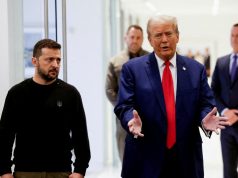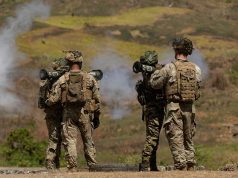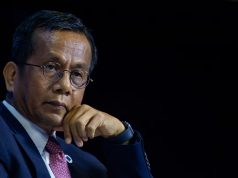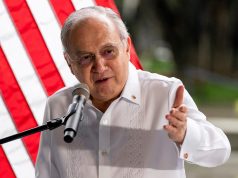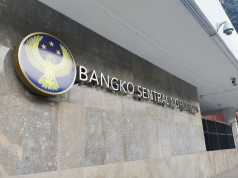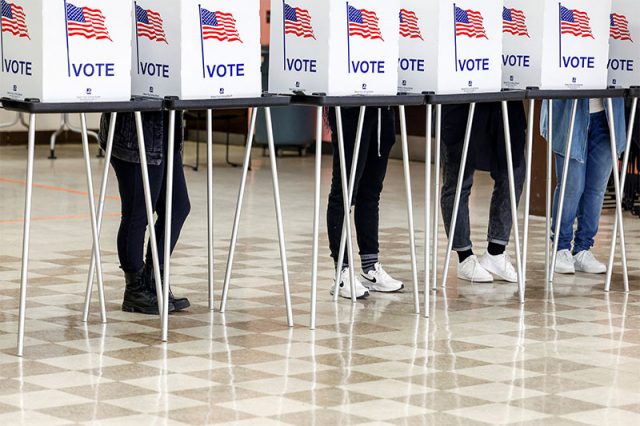
- U.S.-Philippine ties strengthen as China relations sour
- U.S. committed to defend Philippines – ambassador
- Any change in U.S. presidency an opportunity – Romualdez
- ‘Very strong’ interest from U.S. firms in Philippines
MANILA — The Philippines is closely watching the U.S. presidential race but would view any change in leadership as an opportunity to renew the strengthening alliance between the two countries, Manila’s longtime envoy to Washington said on Thursday.
Security engagements between the defense treaty allies have stepped up considerably under U.S. President Joe Biden and Philippine counterpart Ferdinand Marcos Jr, with both leaders keen to counter what they see as China’s aggressive actions in the South China Sea and near Taiwan.
The Philippines, a former U.S. colony, is Washington’s closest ally in Southeast Asia and its proximity to Taiwan makes it crucial to U.S. efforts to counter a potential invasion by China of the democratic island it views as its own territory.
“The only challenge that we face, especially for us in the embassy in Washington DC, is what happens in November. It’s a concern for every country who would be the next president … everybody is preparing for that,” Ambassador Jose Manuel Romualdez told Reuters in a video interview.
Biden is likely to face Donald Trump, the Republican frontrunner to be the party’s presidential candidate, in a rematch in November’s presidential election.
“Any change is always something that we welcome,” Romualdez added.
“It gives us an opportunity to renew what we’ve already been saying, that our relationship with the United States is an important one, we value it, and we really hope that this is the same feeling that they have for us.”
Expanded exercises
Under Marcos, the Philippines nearly doubled the number of its bases accessible to U.S. forces, including three new sites facing Taiwan, as it shifts its focus to territorial defense.
Military exercises have taken place regularly for decades, but maneuvers have extended lately to include joint air and sea patrols over the South China Sea and close to Taiwan, actions China has seen as provocations and “stirring up trouble”.
Beijing’s ties with Manila have soured amid repeated spats over disputed features in the Philippines‘ exclusive economic zone, during which China’s coastguard has used water cannon to drive away Philippine vessels, disrupting fishing and resupply missions to troops in what Beijing sees as its territory.
The Philippines‘ western allies and “like-minded” partners see China’s “aggressive behavior as totally unacceptable,” said Romualdez, a cousin of the Philippine president.
He said it would not waiver in its is commitment to defend its sovereignty and sovereign rights in the South China Sea and “will not back down” over the Second Thomas Shoal, a submerged reef on which the Philippines grounded an old warship in 1999 to serve as a military outpost.
Despite other global challenges, the United States remains “committed to our mutual defense treaty, committed to our alliance,” Romualdez said.
That 1951 treaty binds both countries to defend each other in the event of attack and Marcos last year succeeded in pushing Washington to make clear the extent of that security commitment.
Romualdez also said the relationship was expanding in economic areas too, with the United States due to send its first presidential trade mission to the Philippines next month, for which there was “very, very strong” interest from American companies.
— Reporting by Karen Lema; Editing by Martin Petty




